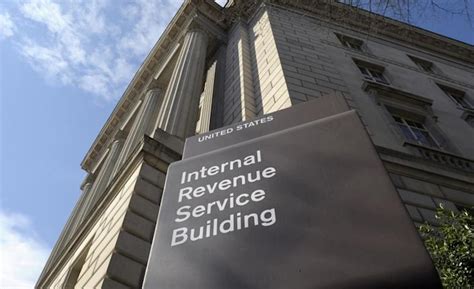Story by Billal Rahman
The Department of Homeland Security (DHS) has asked Treasury Secretary Scott Bessent to deputize certain law enforcement officers, including IRS criminal investigators, to support immigration enforcement operations, according to documents reviewed by The Wall Street Journal.
Newsweek has contacted the IRS, DHS and Treasury Department for comment.
Why It Matters
Border security and immigration are at the forefront of President Donald Trump‘s policy agenda, as he has promised to conduct the largest deportation program in U.S. history.
While large majorities of Democrats and Republicans agree that the immigration system is broken, as indicated in a recent New York Times/Ipsos poll, Americans disagree on how policies such as deportations should be carried out.
What To Know
In a memo dated February 7, Homeland Security Secretary Kristi Noem directed Bessent to deploy agents to investigate financial transactions associated with human trafficking networks and businesses employing undocumented immigrants. The agents would also be authorized to arrest, detain and transport individuals.
Border czar Tom Homan appeared to confirm it was accurate on Fox News as he explained how IRS agents could be deployed to assist with the Trump administration’s ramped-up enforcement operations.
An earlier memo authorized immigration enforcement powers for Justice Department agencies, including the Drug Enforcement Administration, the Bureau of Alcohol, Tobacco, Firearms and Explosives, and the U.S. Marshals Service.
According to its most recent annual report, the IRS Criminal Investigation Division (IRS-CI) has 2,290 special agents, marking a 10 percent increase since 2022.
Under 1357(g) of the Immigration and Nationality Act, the DHS has the authority to enter into agreements with state, local or federal agencies to assist in immigration enforcement. The provision allows designated officers to perform certain immigration-related duties, such as investigating, apprehending and detaining noncitizens, provided they receive the necessary training. The agreements, commonly known as “287(g) agreements,” have historically been used to expand immigration enforcement beyond DHS, deputizing other law enforcement personnel to support federal efforts.
IRS criminal investigators are law enforcement officers with the authority to make arrests, often carrying firearms like other federal agents. They differ from the IRS’ revenue agents and revenue officers, who handle audits and tax collection, respectively.
IRS Criminal Investigation (IRS-CI) has authority under the Bank Secrecy Act (BSA) to investigate money laundering, including financial crimes tied to human trafficking and illegal employment.
Acting Commissioner Douglas O’Donnell is currently leading the IRS. Trump has nominated Billy Long, a former Missouri congressman, to lead the agency, but he hasn’t been confirmed by the Senate.
What People Are Saying
Border czar Tom Homan told Fox News: “We’ll put them to work. For the law enforcement officers, we can certainly put them to work in helping secure some of these at-large operations. They don’t have any immigration authority, but they can certainly cover a back door.
“They can certainly transport. They can certainly help process. The non-criminal IRS agent, they can help us process and do some intelligence and wraparound infrastructure planning.
“We’ll take them. We can use all the help we can get because this is a big operation. So I hope we get some of them.”
What Happens Next
As the DHS pushes forward with the expanded immigration enforcement initiatives, IRS criminal investigators may begin working closely with other law enforcement agencies to target financial activities linked to human trafficking and illegal employment. The collaboration could also involve these agents playing a more direct role in detaining and transporting individuals found to be in the U.S. unlawfully.
The next steps will likely include further training for IRS agents involved in immigration enforcement and the creation of agreements under the Immigration and Nationality Act (INA), particularly the 287(g) provision, to formalize their role.

